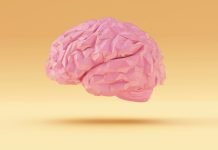
Inflammatory bowel disease, or IBD, is a problem that makes your tummy hurt a lot. It’s like a long-lasting stomach bug that doesn’t go away easily.
IBD includes things like Crohn’s disease and ulcerative colitis, and some other diseases that doctors aren’t quite sure about yet.
The Big Question: IBD and Strokes
A group of scientists in Sweden wanted to find out if people with IBD were more likely to get strokes.
A stroke happens when blood can’t get to your brain, like when a road gets blocked and cars can’t pass. It can be very dangerous.
The study doesn’t say that having IBD means you will get a stroke, but it shows there might be a link.
What Did the Scientists Do?
The scientists looked at the health information of 85,006 people with IBD and compared it to 406,987 people without IBD. They picked people who were the same age, same gender, and lived in the same area.
They kept track of these people for 12 years on average. In the end, they found that 3,720 people with IBD had strokes, while 15,599 people without IBD also had strokes.
What Did They Find Out?
When the scientists did some maths, they saw that people with IBD were 13% more likely to have a stroke.
This was still true even after considering other things that can cause strokes like heart disease, high blood pressure, or being overweight.
They noticed that the type of stroke was important too. The increase was mainly in a type called an “ischemic stroke,” which happens when the blood flow to the brain gets blocked.
Does It Run in the Family?
Because both IBD and strokes can sometimes run in families, the scientists also studied the brothers and sisters of the people with IBD. They looked at 101,082 siblings who had no IBD or strokes at the start.
In the end, they found that people with IBD were 11% more likely to have a stroke than their siblings without IBD.
What Does This Mean For People With IBD?
The study’s lead scientist, Dr. Jiangwei Sun, said that the increased risk lasts for up to 25 years after being diagnosed with IBD. This means that people with IBD and their doctors need to keep an eye out for signs of strokes.
Limitations of the Study
The study is not perfect, though. The ways doctors diagnose IBD and stroke have changed over the years. This might affect the results.
Also, the scientists didn’t know everything about the people in the study, like their diet, whether they smoked or drank alcohol, which could also affect stroke risk.
Still, the study is a crucial first step in understanding the relationship between IBD and stroke risk. If we know the risk, we can take steps to reduce it.
So, while we wait for more studies to be done, it’s important for people with IBD to lead healthy lifestyles, to eat well, to exercise, and to go to their doctors regularly.
If you care about bowel health, please read studies about diet that may reduce inflammation by boosting gut health, and how gut bacteria may trigger colon cancer.
For more information about bowel diseases, please see recent studies about ultra-processed food linked to higher risk of common bowel diseases, and results showing scientists develop a new way to treat common bowel diseases.
The study was published in Neurology.
Copyright © 2023 Knowridge Science Report. All rights reserved.




